Zurab Achba was born on February 23, 1950 in Sukhum - a prominent public and political figure in Abkhazia, a lawyer and human rights activist.
Asta Ardzinba
In August 2000 Zurab Achba was shot in the back in Sukhum. The big murder was never solved.
For human rights and rights of people
Zurab Achba was born in 1950 in the capital of Abkhazia and graduated from Sukhum Secondary school No, 10, and received a law degree in Moscow, Moscow State University.
He began his political career in the 1980s at the peak of the national liberation movement of the Abkhaz people, in the midst of the struggle for the independence of Abkhazia. He was one of the leaders of the “Aidgylara” public movement. (The Aidgylara (Unity) People's Forum of Abkhazia took place on December 3, 1988 in Sukhum and resulted in a movement uniting groups of citizens of Abkhazia in the struggle for independence of the republic - ed.).
In 1989, Achba became deputy Chairman of the People's Forum of Abkhazia. In 1991-1996, he was a deputy of the Parliament of Abkhazia. This, the first, convocation of the Parliament, which was subsequently called the “golden” one, adopted the documents that were crucial for the country and formed the basis of the statehood of Abkhazia.
During the Patriotic War of the people of Abkhazia 1992-1993, Zurab Achba was a representative of the Republic. He traveled to Russian cities, held meetings with politicians, journalists, trying to convey to people reliable information about what was happening and break through the information blockade of Abkhazia.
After the war, Zurab Achba moved to Moscow, where for several years he worked as the head of legal advice. In 1999, he returned to his homeland. The last year of his life, Achba worked as a lawyer in the Sukhum UN and the OSCE Human Rights Office, provided legal assistance to citizens of Abkhazia.
Fair and competent
Friends and like-minded people considered Zurab Achba a fair and decisive person. He was vividly described by a public figure Natella Akaba, calling Achba “an outstanding person, a faithful son of his people and a bright, charismatic politician.”
“I happened to make friends with Zurab in 1989 when we participated in the activities of the national liberation movement “Aidgylara”. He was then elected deputy of Sergey Shamba - [then] Chairman of the People's Forum of Abkhazia. Zurab had an amazing oratory. When in the pre-war period he spoke to a Georgian audience and defended the right of the Abkhaz people to independent development, he was so convincing that the Georgians applauded him. Zurab was also one of the initiators of the creation of the Confederation of Peoples of the Caucasus - an organization that made a huge contribution to our victory in the Georgian-Abkhaz war,” Akaba said.
According to her, as a deputy, Zurab Achba showed himself as an educated lawyer, was involved in the development of bills. Among the deputies of the first Abkhaz Parliament, he stood out for his integrity, oratory and ability to defend his point of view.
“At that time I was the deputy Chairman of the Commission of the Supreme Council for Human Rights and Interethnic Relations (and the Chairman of the Commission was an authoritative Abkhaz politician Yuri Nikolaevich Voronov). In that difficult pre-war period, we were often approached by people whose rights were violated. Since Zurab was by nature a very fair person and a competent lawyer, I often consulted with him regarding the protection of the rights of victims, and he rendered them legal assistance,” Natella Akaba shared her memoirs.
Zurab Achba and the Constitution of Abkhazia
The public figure noted the special role of Zurab Achba in drafting the Constitution of Abkhazia.
As you know, in the pre-war period, Abkhazia was a parliamentary republic in the form of government, the country was headed by the Chairman of the Supreme Council Vladislav Grigorievich Ardzinba. After the war ended, Zurab Achba began to convince his colleagues among deputies about the need for a transition to a presidential form of government. At that difficult time, when Georgia did not abandon its revenge plans for the return of Abkhazia, and Russia did not agree to recognize the independence of Abkhazia, Zurab Konstantinovich considered it necessary for the president to make decisions independently in a state of emergency, Akaba explained.
The new Constitution of independent Abkhazia was developed and adopted in 1994. In that historical context, the decision to empower the president with the broadest powers was logical and timely, Akaba emphasized, but later Zurab Achba began to criticize the adopted Constitution rather harshly, in particular for the lack of effective mechanisms to ensure the exercise of fundamental rights and freedoms of citizens.
So, Zurab Konstantinovich said: “The drawback of our Constitution is the failure to maintain a democratic equilibrium in the separation of the legislative and executive branches of government. The powers of the Parliament are so narrowed and reduced to legislative activity that it is hardly possible to talk about the Parliament as a public political body. At the same time, presidential powers are bloated and autonomous from parliamentary and judicial control. The executive branch in Abkhazia dominates almost all spheres of public life: political, economic, partly through personnel policies, the judiciary and local self-government.”
“Therefore, Zurab considered it necessary to amend the Constitution,” Natella Akaba added.
Words in the will to the home country
A skilled orator and polemicist, in the last year of his life Zurab Achba also proved to be a talented publicist. Today, 20 years after his death, his articles and speeches are still quoted.
Here are just a few quotes - these are fragments from Achba’s publications in “Nuzhnaya Gazeta” for 1999. Their full text in Russian is available on the website of the Abkhaz Internet Library.
“There are places in the world where fools and psychos are irresistibly attracted. These are political parties and public organizations, rallies and demonstrations, public spectacles and ... Parliament,” Achba spoke vigorously about lawmakers, and ironically ranked himself as a person without any talents.
Achba advocated openness and transparency of government activities.
“The nature of bureaucratic management of society is genetically alien to publicity. Our gray as a field mouse and fresh as a Jewish matzo television and press are the result of their bureaucratic sterilization and protection,” he noted acutely.
One of the leaders in the process of establishing a new Abkhaz statehood, Achba considered it necessary to carry out constitutional reforms. “Our real life and our Constitution exist in different dimensions,” Achba said. He pointed to a strong preponderance of the executive branch, but he agreed that the adoption of the Constitution in 1994 was necessary.
He owns the words: “Despite all the costs of growth and formation, our state and its Constitution are the greatest achievement of the people of Abkhazia, their enduring values, and the conditions for their prosperity. Moreover, the authorities and officials, personifying it, should enjoy the utmost respect and reverence. Provided that the authority exercises its powers to the extent established by law. It does not matter whether we approve the government’s course or its individual actions. This is the rule of civilized relationships in a democratic society.”
A politician and lawyer, Achba advocated the creation of an ombudsman institution in Abkhazia, worrying about the rights of ordinary citizens, advocated for the development of civil society, for the presence of the opposition, without which a healthy political system is unthinkable.
“Our society is suspicious of the opposition, confusing it with the monkey business of retired officials. The bureaucratic, or, as I call it, “vicious” opposition, is preoccupied with the problems of official survival. Its opposition is instantly replaced by loyalty when they are back in the
office,” noted Zurab Achba, teaching to distinguish real opposition from the illusion of opposition.
P.S.
Those responsible for the murder of Zurab Achba, which occurred on August 15, 2000, have not yet been found and have not been brought to trial. Friends and relatives of the lawyer associated the murder with his political activities, explaining that he was very direct and open, was not afraid to disclose even criminal facts.
An educational center named after Zurab Achba “Peace without violence”, founded by political scientist Dalila Piliaa, exists in in Sukhum for many years. Young Lawyers Society was organized at the center. Since 2013, the center has regularly held a scientific and practical conference “Achba’s readings”.
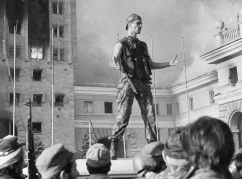
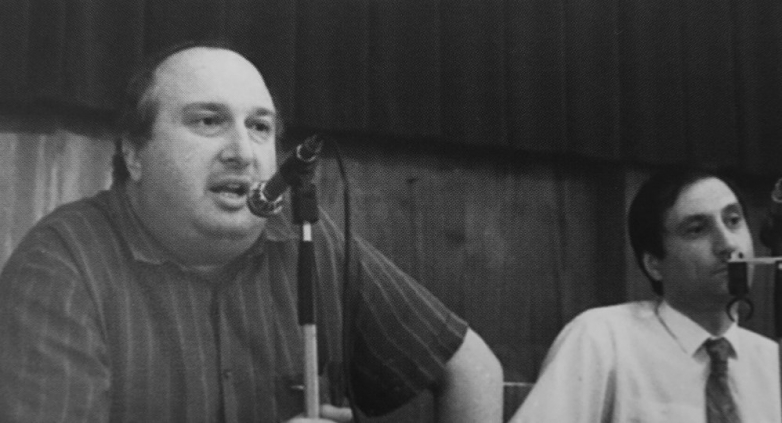
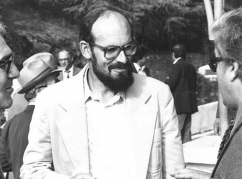
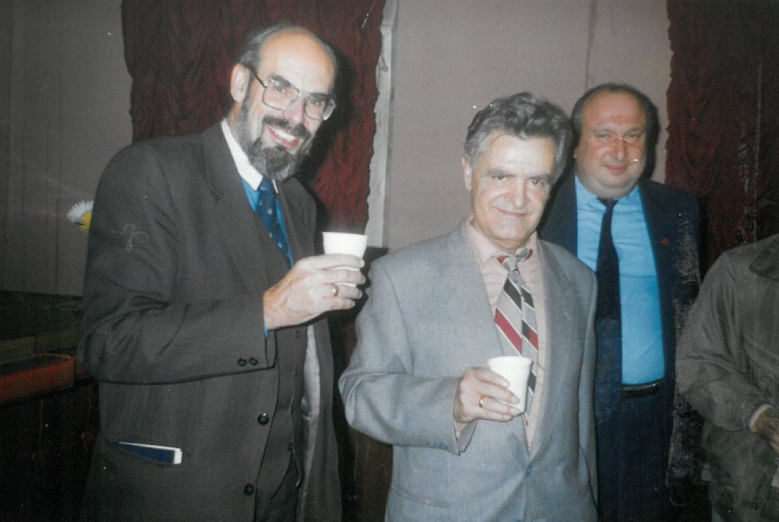
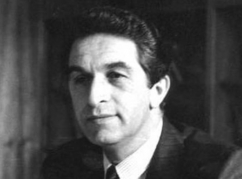
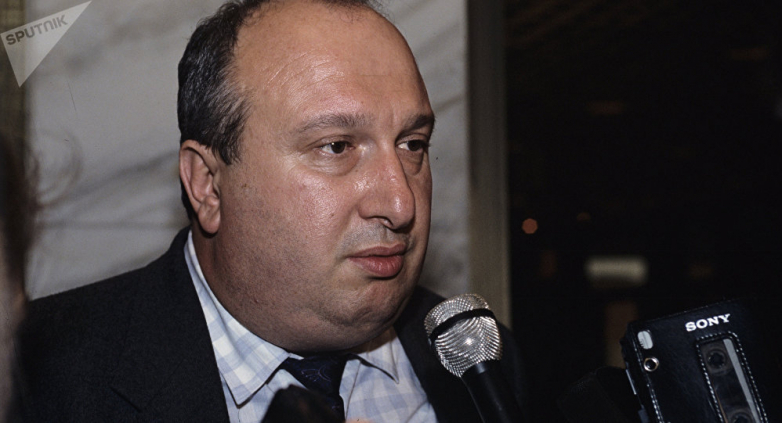
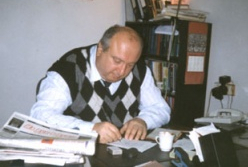
to login or register.